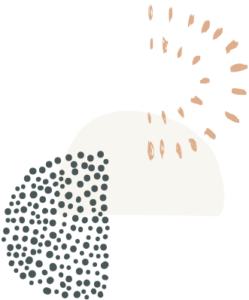FAQ´S
Why eat crickets?
We think the real question should be ‘why not eat crickets?’. Crickets are nutrient-dense, rich in complete protein, minerals, vitamins and essential fatty acids. The FAO (Food and Agriculture Organization of the United Nations) promotes eating insects because, besides being highly nutritious, they have an extremely low environmental footprint. Farming insects requires only a tiny fraction of all the natural resources needed to produce traditional protein sources. Switch on your antennas – crickets taste amazing!
Are crickets really sustainable?
Yes, we could say that they are an almost perfect source of sustainable protein. They require drastically less land, water, feed and energy than traditional protein sources and that’s really important if you don’t want to wave your kids off to a new life on Mars. According to FAO, the
world population will reach 9 billion by 2050 and meat consumption will double by then.
Currently, a third of the world’s land is already used to satisfy our demand for meat. Additionally, livestock industries are the second highest cause of atmospheric pollution. Check the facts! We need to find alternative sources of sustainable protein and we need them now! Crickets are the most promising one and Small Giant snacks are the way to fall in love with them!
Are crickets a healthy food choice?
Crickets are a complete protein source, containing all the essential amino acids – the building blocks of protein that we can only get from food. They have up to 70% protein content which is about two to three times higher than red meat. Compare that to some other traditional source of protein – chicken breast has 31%, salmon 20%, boiled soybean 17%. Crickets are also a source
of vitamins, minerals, fatty acids and fibre and so they’re ideal for a balanced diet. Vitamin B12 is fundamental for your immune system to thrive and crickets have more than 100% of your recommended daily intake of Vitamin B12 per serve.
They also contain as much calcium as milk, making them the perfect non-dairy source of calcium.
This is what a superfood looks like to me!
Insect .VS. Plant .VS. Meat protein explained:
Amino acids are the blocks that make up all proteins. 9 of them cannot be made by our body and must come from food. Crickets, as an alternative animal protein, contain all 9 essential amino acids making them a ‘complete protein’ source. Incomplete proteins tend to be plant-based. This doesn’t mean that having a vegetarian diet is unhealthy but that incomplete proteins should be combined within a day or a single meal to ensure that all essential amino acids are included in your diet
Do insects feel pain?
The insect nervous system is very different from that of higher-order animals. They lack the neurological structures responsible for translating negative stimuli (as of injuries) into emotional experiences. Insects also don’t show pain responses, for examples insects with crushed abdomens continue to feed and mate. On top of that, farmed crickets are put in freezers where they go into their natural state of diapause (similar to hibernation) which stops all their nervous
system activities.
How do you farm your crickets?
Eating insects is nothing new in many parts of the world. The UN’s Food and Agriculture Organisation (FAO) estimates that insects are part of the regular diet of roughly two billion people globally. Edible insects have long been a part of Thailand’s traditional cuisine, so it’s not surprising that insect farming is widely spread there. Crickets also need high temperatures
(ideally 30°C) to live in ideal conditions.
Our crickets are guaranteed for human consumption and farmed in Mexico. The farming of crickets and all the steps involved in the production take place in a controlled environment in order to obtain the best quality flours. Crickets are used to living in dense conditions, can be farmed vertically, and can be reared on bio-waste transforming it into high-quality protein.
Type: House Cricket (Acheta Domesticus)
Ideal temperature: 30°C
Lifecycle: 4 weeks in optimal conditions
Diet: mixed (gluten-free) grains and vegetables.
Are bugs vegetarian?
There is not a single answer, the topic is delicate and there are different opinions. A very simple answer could be: ‘No’. Vegetarians don’t eat animals, insects are technically animals so vegetarians don’t eat insects. But for those vegetarians who have chosen to avoid meat to reduce their environmental footprint the answer is ‘Yes!’. Bugs are way more sustainable than livestock, so they’re a perfect low-impact alternative to traditional protein.
So, if you dream of a world where 7.6 billion people would become vegans, bugs are not the solution, but if you believe that is simply unrealistic then they should be part of our future. What complicates even further the answer is also that several studies have clearly shown that insects don’t feel pain and that thousands of insects are killed by pesticides used for in agriculture
What is allergens advice?
People who are allergic to crustacean shellfish may also be allergic to crickets.
Is there any hazard for my health?
There are no known cases of transmission of diseases or parasitoids to humans from the consumption of insects (on the condition that the insects are handled under the same sanitary conditions as any other food). Allergies may occur, however, that are comparable with allergies to crustaceans, which are also invertebrates. Compared to mammals and birds, insects may pose less risk of transmitting zoonotic infections to humans.


